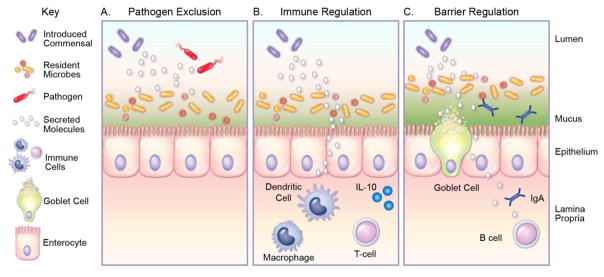Figure 1.
Methods utilized by commensal bacteria to beneficially modulate the intestinal environment. A. Commensal bacteria are able to secrete molecules which can alter the gut microbiota. By selectively inhibiting resident microbes, commensal bacteria are able to establish an intestinal bacterial niche. Production of anti-microbial factors has also been shown to exclude pathogens. B. Select commensal bacteria are also able to secrete compounds which can modulate immune cells such as macrophages, dendritic cells or lymphocytes such as T cells. These compounds decrease intestinal inflammation by dampening pro-inflammatory cytokines and promoting anti-inflammatory factors such as Interleukin (IL)-10. C. Finally, commensal bacteria can secrete factors which modulate the functions of the epithelial barrier by enhancing the secretion of the protective mucus layer, upregulating tight junctions and promoting secretion of molecules such IgA.

